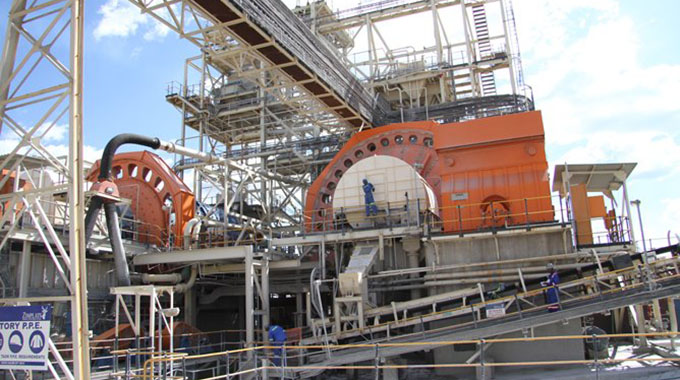Zimplats contracts DPA for solar project
Distributed Power Africa (DPA), a business unit owned by Cassava Technologies, a leading pan-African technology group, is set to install two carport solar solutions at Zimbabwe Platinum Mines (Zimplats).
The carport installations will power the Zimplats administration hub at the company’s Mupani Mine offices in Mhondoro Ngezi, resulting in cost savings and fulfilling Zimplats’ vision to reduce carbon emissions, promote use of clean energy, and develop green and sustainable mining operations.
DPA, a leading supplier of renewable energy infrastructure across Africa, is responding to the growing need for alternative power by developing end-to-end solutions for customers in various sectors across the continent, including in Zimbabwe.
Commenting on the Zimplats project, DPA group chief executive officer, Norman Moyo, said: “This innovative carport solar project provides a solution that fulfils both environmental sustainability and cost-saving goals for Zimplats. We look forward to supporting other commercial and industrial partners in their efforts to switch to more efficient, greener, and cost-effective power solutions.”
Zimplats, Zimbabwe’s biggest mining operation, is currently on an expansion drive with the development of new mines and processing capacity. The company has stated its desire to increase investments in renewable energy.
With a projected annual energy production of 276 000kWh, the two Zimplats carports will save approximately 161 tonnes of carbon emissions and over 1 600 trees per year.
The electricity deficit on the continent has increased the demand for organisations investing in alternative and renewable energy. This has resulted in DPA speeding up the rollout of renewable energy solutions for customers across various sectors in Zimbabwe and Southern Africa.
DPA has been doing much for the local industry and in December the renewables company bagged two awards at the Zimbabwe Solar Week Leadership Awards 2022 which were held in Harare.
The renewable energy firm won an award in the Best Solar Project of the Year category and the second award was for their chief executive officer in Zimbabwe, Divyajeet Mahajan, who was named CEO of The Year.
This deal comes barely a few weeks after the solar company signed another rooftop solar construction contract with National Railways of Zimbabwe Contributory Pension Fund to the tune of a projected annual energy production of 5,59GWh, which will contribute significantly towards relieving the grid.
Commenting on the agreement, Mahajan, CEO of DPA Zimbabwe, said: “We are delighted to be working with the National Railways of Zimbabwe Contributory Pension Fund.”
“The growing awareness among businesses to adopt reliable and cleaner energy is encouraging as it highlights the increasing consciousness towards meeting sustainability goals. We are ready to partner with our clients to deliver solutions that meet their energy needs especially with the current load shedding situation in the country.”
Takunda Madanha, chairman of the NRZ Contributory Pension Fund Board said; “This partnership with DPA fulfils our mission as the Pension fund to manage the Fund in a way that is efficient and responsible.
“By switching to solar energy, we will save over 2,192 tonnes of carbon emissions annually, which will help us meet our obligations to our members, our tenants, and the environment.”
DPA also signed an agreement with Varun Beverages in October to install a 2,5MW rooftop solar plant at the Pepsi bottler’s Harare factory.
The two companies agreed to a 25-year power lease agreement for the system, which is projected to give Varun annual energy production of 4,1GW.
It will be the largest roof-mounted solar system installed in Zimbabwe to date.
In his mid-term budget in August, Finance and Economic Development Minister Prof Mthuli Ncube pointed to projects completed by DPA that include — the Schweppes 1MW, the Surrey Meats 118kW and the Kefalos 600kW solar plants, as key to helping Zimbabwe improve energy supply.
Solar carports are a fast-growing trend in the energy industry globally. They offer efficient use of space as they do not require additional land, which is a major advantage for commercial enterprises with limited space.-ebusinessweekly











